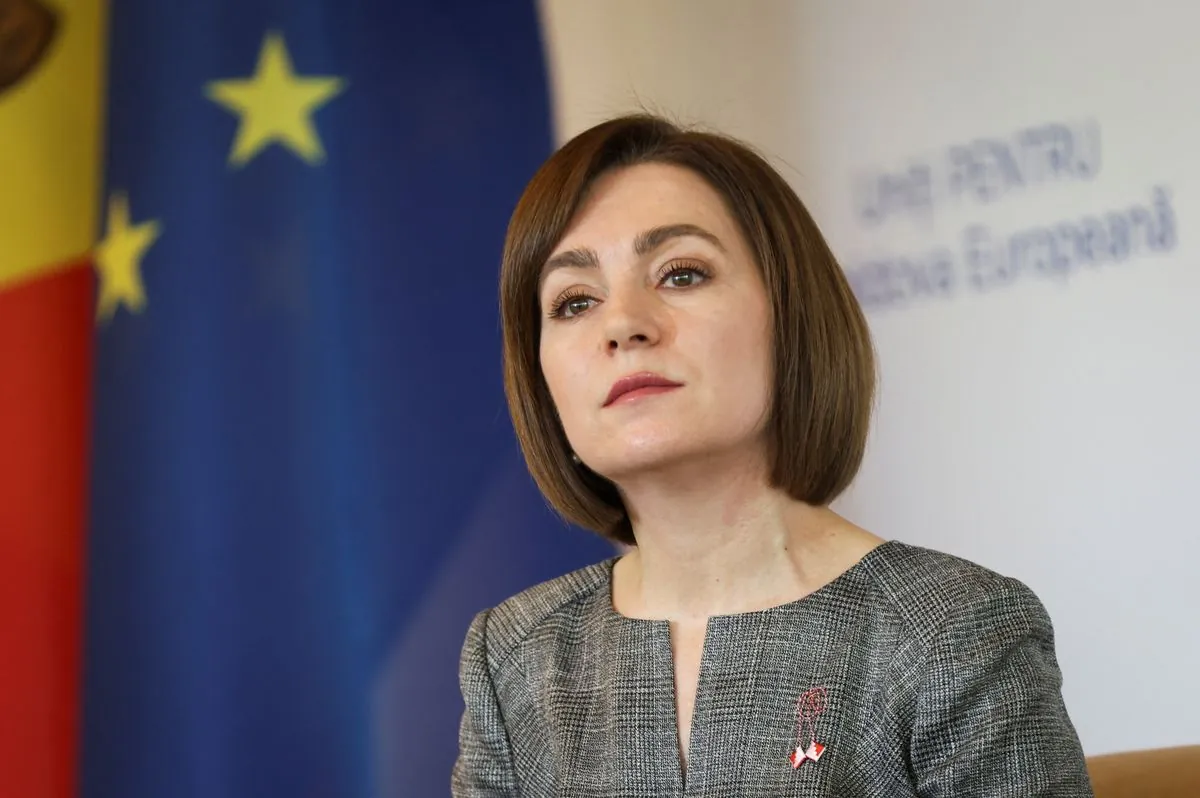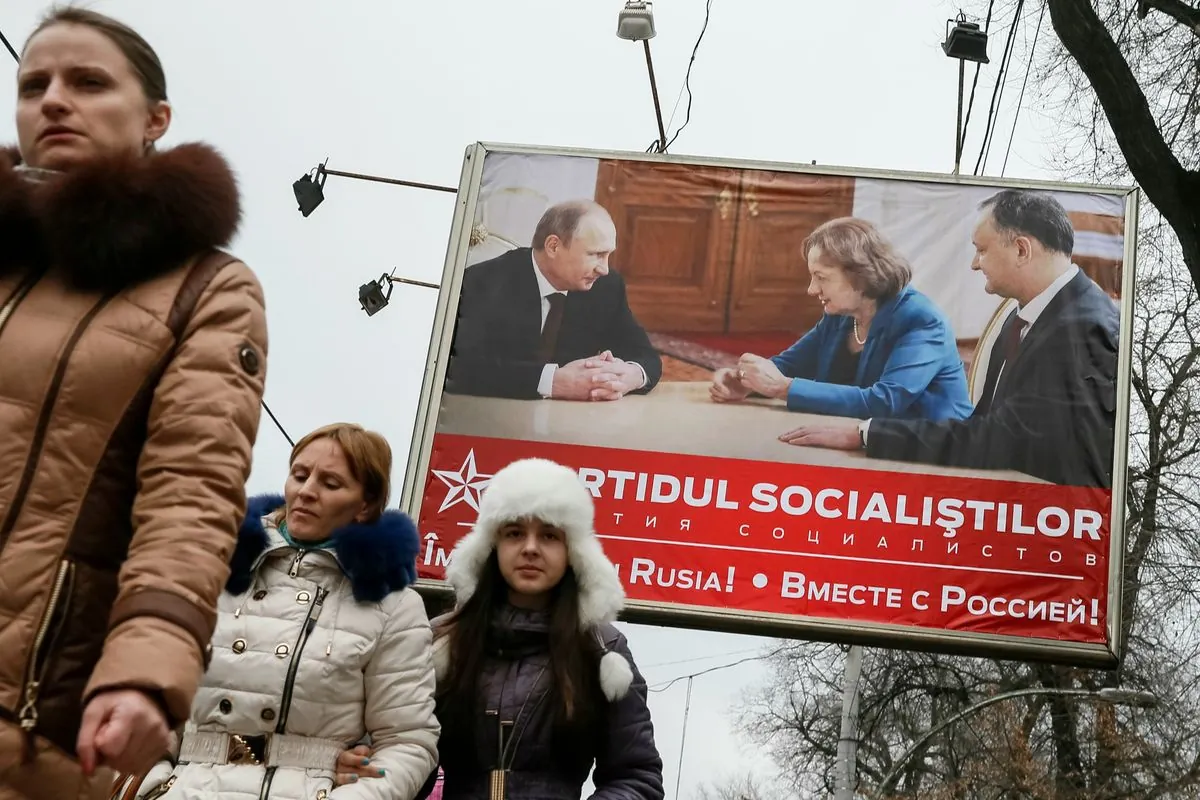Moldova's EU Referendum: Minister Warns Against Vote-Buying Schemes
Moldova prepares for crucial presidential election and EU membership referendum. Government officials warn against fraud as pro-Russian forces attempt to influence the vote through financial incentives.

As Moldova, one of Europe's poorest nations, approaches a pivotal moment in its history, government officials are urging citizens to remain vigilant against attempts to manipulate the upcoming presidential election and European Union (EU) membership referendum. The vote, scheduled for October 20, 2024, has become a battleground between pro-European and pro-Russian forces, highlighting the country's complex geopolitical position.
Andrei Spinu, Moldova's Infrastructure Minister and head of incumbent President Maia Sandu's re-election campaign, has called on Moldovans to reject "thieves, fugitives and bandits" who are attempting to influence the vote through financial incentives. This statement comes in response to a controversial offer made by Ilan Shor, an exiled pro-Russian businessman, who pledged to pay voters for opposing EU membership in the referendum.
Shor, who was sentenced to 15 years in prison in absentia in 2023 for his role in a major banking scandal, has offered voters approximately $29 to register for his campaign. He has also promised larger rewards for those who vote against EU membership and reside in districts that reject the proposal. Despite heading the "Victory" election bloc, Shor's group has been barred from participating in the campaign.

The upcoming referendum seeks to amend the constitution to facilitate Moldova's pursuit of EU membership. This move is seen as crucial for the country's future, given its strategic location between Ukraine and Romania. Moldova, which gained independence from the Soviet Union in 1991, has been working towards closer ties with the EU, having signed an Association Agreement in 2014 and being part of the Eastern Partnership program since 2009.
Maia Sandu, the pro-European incumbent president seeking a second term, has been vocal about the threats facing Moldova. In a recent address, she warned voters about potential fraud and intimidation tactics, urging them not to let others decide their fate. Sandu has consistently denounced Russia's invasion of Ukraine and identified Moscow as one of the most significant threats to Moldova's security and sovereignty.
"The liars are now trying to intimidate us and oblige us to take decisions other than those that we want. We must not let them decide our own fate."
The campaign has been marred by incidents of vandalism, with paint being daubed on buildings belonging to state institutions, including the national broadcaster and the Supreme Court. Police have attributed these acts to a group allegedly trained in Moscow to destabilize the election process.
Recent polls suggest that Maia Sandu is favored to win the presidential vote, with approximately 27% support among a field of 11 candidates. The same polls indicate that 56% of decided voters support EU membership, while 34% are opposed. These figures reflect the ongoing debate within Moldovan society about the country's future direction.
Moldova's journey towards potential EU membership is set against a backdrop of significant challenges. As one of Europe's poorest countries with a population of about 2.6 million, Moldova faces economic hurdles, including a heavy dependence on agriculture and remittances from its significant diaspora working abroad. The country has also grappled with energy security issues due to its reliance on Russian gas supplies.
Despite these challenges, Moldova has been making strides in various areas. The country has been a member of the United Nations since 1992 and the Council of Europe since 1995. It has also been working towards digitalization and e-governance initiatives in recent years, aiming to modernize its public services and improve transparency.
As the election and referendum approach, Moldova finds itself at a crossroads, balancing its aspirations for European integration with the complex realities of its geopolitical situation. The outcome of this vote will likely have far-reaching implications for Moldova's future, its relationship with the EU, and its position in the broader regional context.


































